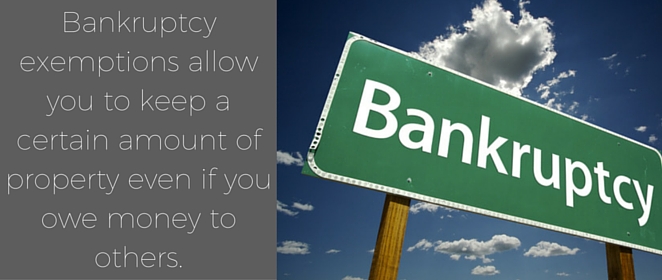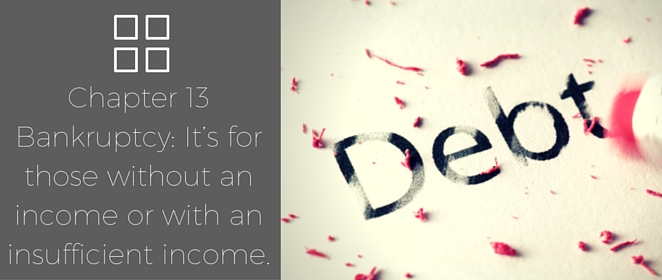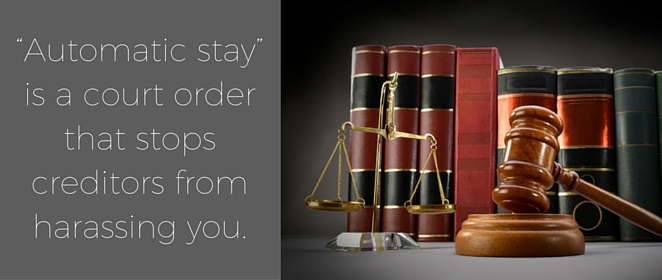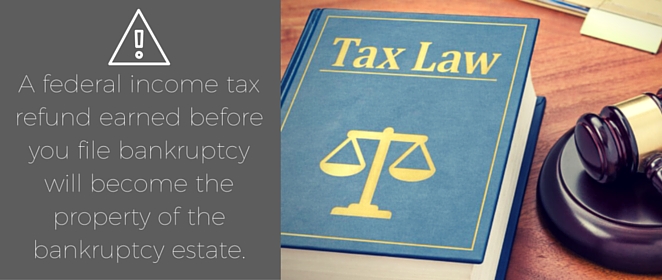Bankruptcy or Taxes: What To File First

If you are sinking in overwhelming debt, you may be considering bankruptcy, but you should know that no law that ever requires anyone to declare a personal bankruptcy. The first thing you need to do is to have an experienced bankruptcy lawyer evaluate your personal financial circumstances. For some, a bankruptcy is the only practical option, but for many consumers dealing with debt, an alternative to bankruptcy may be less expensive and equally helpful. Bankruptcy laws are slightly different in each state, so in the greater Chicago area, you should consult promptly with an experienced Chicago bankruptcy lawyer.
When your financial concerns are focused on important matters like debt and bankruptcy, something that seems less important – like your federal income tax returns – may get overlooked. If you file for bankruptcy during tax season, what will happen to any tax refund you receive before you file or while the bankruptcy procedure is pending? Is there any benefit to filing your income tax return first and then subsequently declaring bankruptcy? If you file for bankruptcy first, will you lose your income tax refund? Your bankruptcy “estate” is established when you file for bankruptcy, and any tax refund you acquire after declaring bankruptcy becomes part of that estate as long as your bankruptcy is in progress. Let a good bankruptcy lawyer help you plan your bankruptcy before you declare it, and by smartly taking advantage of bankruptcy exemptions, you may be able to keep some or all of your federal income tax refund.

ILLINOIS BANKRUPTCY EXEMPTIONS
Exemptions allow you to keep a certain amount of property even if you owe money to others. Every state designates specific property that you may retain so that you can remain productive, keep paying your debts and improving your finances, and not become destitute. Bankruptcy exemptions vary from state to state. Although nineteen states let consumers choose between the federal and state bankruptcy exemptions, Illinois is not one of those states, and consumers filing bankruptcy in Illinois are permitted to exempt property using only the Illinois state exemptions. In a Chapter 7 bankruptcy, the exemptions allow you to retain a particular amount of property, and the exemptions also help you calculate what must be paid to creditors under a Chapter 13 bankruptcy. Here are some of the bankruptcy exemptions allowed under Illinois bankruptcy laws; let a good bankruptcy lawyer help you determine how best to take advantage of these exemptions:
1. Income: Exempted income includes unemployment insurance, Social Security payments, veterans’ benefits, and any public assistance; illness, disability, or unemployment payments from an employer or an insurance company; and alimony, spousal maintenance, or spousal support payments.
2. Real Estate: The Illinois homestead bankruptcy exemption is $15,000 of equity in a house, mobile home, or condominium that is your primary residence (and $30,000 for a married couple).
3. Property: Pre-paid tuition trust funds, pre-paid cemetery sales or trust funds, clothes, healthcare aids and devices, certain property proceeds, and wrongful death awards are all exempt without regard to their value. You may also exempt $2,400 on the value of your personal vehicle, $15,000 of personal injury awards, and $1,500 of tools, books, and implements used in your work.
4. Wild Card: Illinois also allows a $4,000 “wild card” exemption on any personal property except wages. Many people will have a federal income tax refund which is less than $4,000, and they may use the wildcard exemption, or a portion of it, toward keeping the refund. The wildcard exemption isn’t limited to a particular type of property, so you can use it on any asset or combine it with other exemptions.

WHAT TYPE OF BANKRUPTCY?
For some consumers in some circumstances, there may be situations where it’s preferable to file the federal income tax return first, spend the refund money, and then file the bankruptcy petition. You’ll want to discuss the best approach for you personally with an experienced bankruptcy lawyer. You’ll also want your lawyer’s advice and insights regarding the timing of your bankruptcy filing and the type of bankruptcy you that you qualify for – Chapter 13 or Chapter 7. You’ll have to pass a means test to qualify for Chapter 7. It’s for those without an income or with an income that’s insufficient to cover their debts. There’s no means test required for a Chapter 13 bankruptcy. If you file under Chapter 13, you and your bankruptcy lawyer will create a payment plan designed to pay your debts over a precise length of time, typically three years. The guidance and insights of an experienced bankruptcy lawyer will be critical throughout the process.
Whether your bankruptcy is filed under Chapter 7 or Chapter 13, your private creditors – even if they have a judgment against you – may not directly seize a federal income tax refund; that “right” belongs exclusively to the federal or state government seeking payments for taxes, child support, student loans, and fines owed to civil or criminal courts. In Illinois, hospitals are the only private creditors that may seize a state income tax refund. A word of caution, however: after any income tax refund is placed in your personal checking or savings account, it becomes a target for your private creditors.

WHY YOU NEED A BANKRUPTCY ATTORNEY
If you are fighting against overwhelming debt and the debt is defeating you, speak to an experienced bankruptcy lawyer as quickly as possible – before filing a tax return, a bankruptcy petition, or taking any other legal action. Why, you might ask, should you hire a bankruptcy lawyer if you are already in debt and if you are not required by the law to retain an lawyer? Because bankruptcy is complicated, and without the help of an lawyer who routinely handles a variety of bankruptcy cases, you could lose a great deal of money. Any mistakes, misstatements, or misunderstandings could delay your bankruptcy or cost you unexpectedly.
If you’re unable to satisfy any of the bankruptcy qualification requirements, you can still be targeted for repossession or foreclosure as well as those intimidating phone calls from creditors and their representatives. You’ll almost certainly require a bankruptcy lawyer’s advice and services during a bankruptcy procedure, so the wisest move is to make that call before taking any other step. In the greater Chicago area, speak with an experienced bankruptcy lawyer who will ensure that you obtain the legal protection you need.
Probably the most important protection that you acquire upon declaring bankruptcy is the “automatic stay,” a court order that stops creditors from harassing you or attempting to collect debts during the bankruptcy process. When you declare bankruptcy, your creditors are informed that they are now subject to an automatic stay. New claims may not be filed against you, pending cases are usually put on hold, and no bullying calls or letters are allowed. Creditors who violate the automatic stay violate the law, and if that happens, your bankruptcy lawyer will go to court on your behalf to enforce the stay.
BUT IS IT RIGHT FOR YOU?
Bankruptcy is not the single solution for every individual or family that struggles with mounting debts. If there’s an alternative to bankruptcy that’s more practical and effective in your own situation, a good bankruptcy lawyer will help you identify and pursue that alternative. A bankruptcy lawyer will evaluate your personal finances to decide if bankruptcy or another option is the alternative that’s best for you. If bankruptcy is the best option after considering the others, your lawyer can explain the means test and other requirements for a Chapter 7 bankruptcy and then help you file under either Chapter 7 or Chapter 13. Your bankruptcy lawyer will make sure that your bankruptcy petition is accurate and complete, without errors or misunderstandings, and your lawyer will also see to it that you enjoy the full protection of the law.

Quite honestly, the way to keep your federal income tax refund is to file your tax return, cash the refund check, and spend the cash before you file a bankruptcy petition. It’s not only just that simple, but on the day you declare bankruptcy, you should have as little cash as possible sitting in the bank. The other alternative is almost just as simple – if you’re declaring bankruptcy next year. Don’t receive a tax refund. Have your employer withhold only the minimum amount from your paychecks this year and not a cent more. A federal income tax refund for wages earned before you file a bankruptcy petition will become the property of the bankruptcy estate, and you’ll lose it unless you use an exemption to protect it.
OBTAIN A FRESH START
Bankruptcy in the United States is designed so that honest, hard-working people who’ve made mistakes can put their finances in order and get a fresh financial start. Bankruptcy protects you from repossession, foreclosure, creditor lawsuits, and harassment. However, for a bankruptcy to accomplish its purpose, there are some simple rules that you’ll need to follow. Write out a budget, and stick to it. Save every cent that you can. And start slowly rebuilding your credit. An experienced bankruptcy lawyer can help you avoid most of the mistakes that can be made in a bankruptcy and can offer you recommendations for helping you rebuild your credit. If your debts are stacking up faster than you can pay them, talk with a good bankruptcy lawyer promptly, and in the Chicago area, with an experienced Chicago bankruptcy lawyer as quickly as possible.


